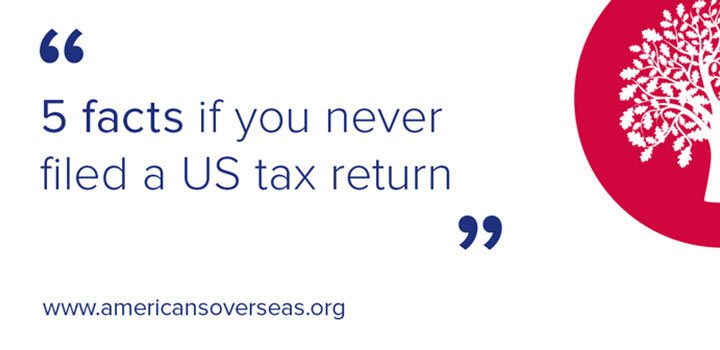The IRS announced a new updated Streamlined Procedure in june 2014. This procedure is a friendlier and less costly approach to bringing non-compliant Americans back into the tax filing system.
Major points Streamlined Procedure
- Taxpayers will be required to file only 3 years of back tax returns and 6 years of FBARs. If the IRS agrees that the taxpayer is eligible for the Streamlined Procedure, no penalties will be assessed for late or corrected tax filings if the taxpayer meets the definition of being a non-US resident.
- Taxpayers must provide a statement of facts. They must certify that their failure to report foreign financial assets. They must pay all taxes due in respect of those assets that did not result from willful conduct on their part. In other words, the tax non-compliance must have been ‘non-willful’. Taxpayers should undertake some serious due diligence. They should obtain professional advice before signing a certification of non-willfulness and entering the Streamlined Program. You can read more about the non-willful requirement here.
- For those taxpayers residing outside the US who are eligible for the program, all penalties will be waived. Including, for example, the failure to file and/or failure to pay penalties, the accuracy-related penalty, FBAR penalties, and other penalties for non-filing of information returns concerning foreign assets.
Civil penalties
- This procedure will not protect from possible civil penalties if the IRS considers such penalties should apply. It will not protect from possible criminal prosecution if the IRS and Department of Justice determine that the taxpayer’s particular circumstances warrant such prosecution. Taxpayers who are unsure of their potential for such sanctions should seek advice from a qualified US tax attorney. And most importantly, make sure they preserve the attorney-client privilege.
TIN and SSN
- All returns submitted under the streamlined procedures must have a valid Taxpayer Identification Number (TIN). For U.S. citizens, resident aliens, and certain other individuals, the proper TIN is a valid Social Security Number (SSN). Unfortunately, many Americans do not have Social Security Numbers. One reason for this might be that while the individual may have been born in America, he or she left as a young child and did not obtain an SSN. The IRS is just starting to realize the severity of this problem and how it prevents taxpayers from becoming tax-compliant. An explanation of how to get your SSN can be found here.
Americans Overseas
Americans Overseas informs local and European parliaments about the effects and issues European citizens face with these recently introduced laws. By continuously putting the topic on the agenda and giving it attention, several changes have been achieved.
We started Americans Overseas to assist people from all over the world by providing accurate information to prevent unnecessary panic and offering free and non-binding assistance. If necessary, we have a network of affordable professionals (accountants) who can help you with your tax obligations.
If you have more questions about the implications of FATCA data transfers for accidental Americans, you can contact us at Americans Overseas.
Contact us for more information







